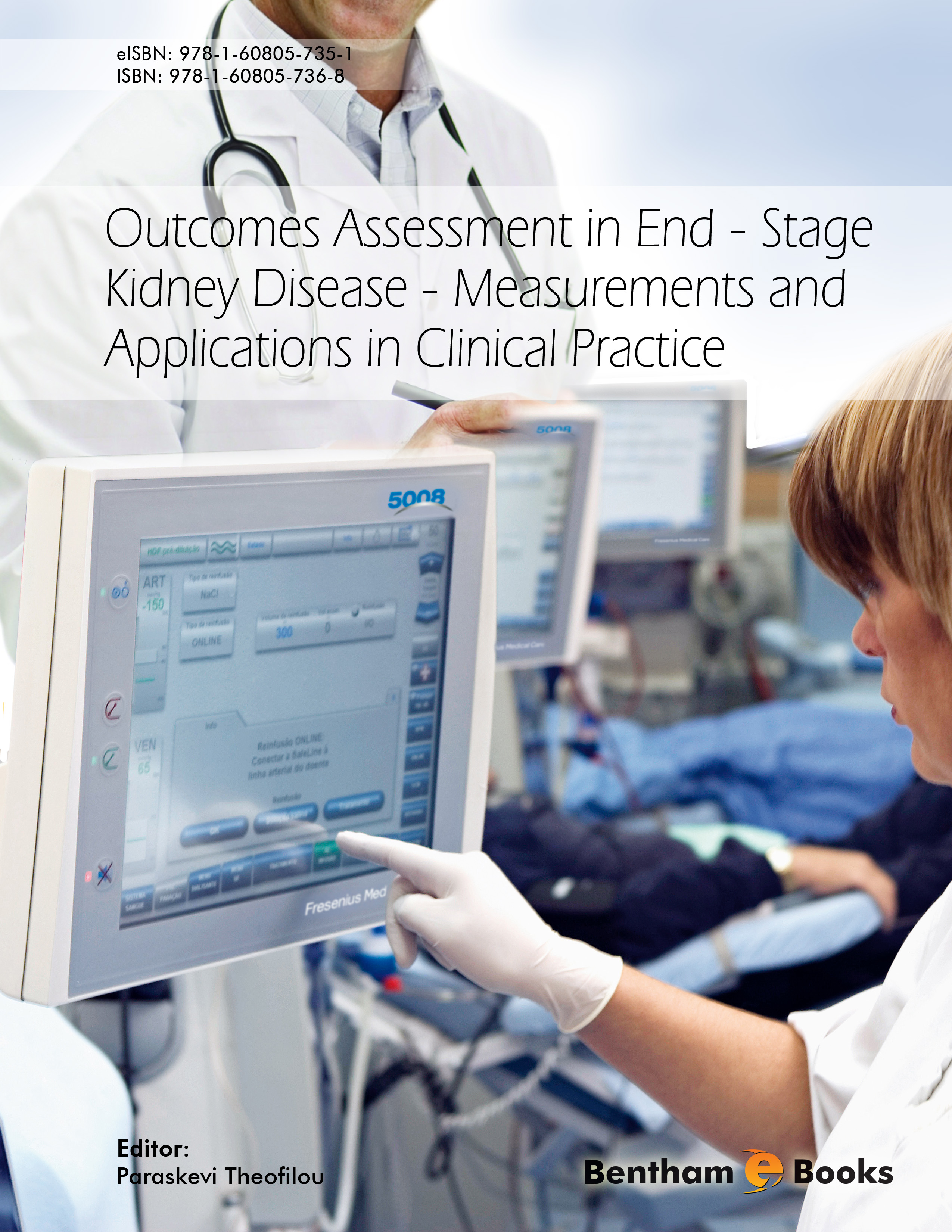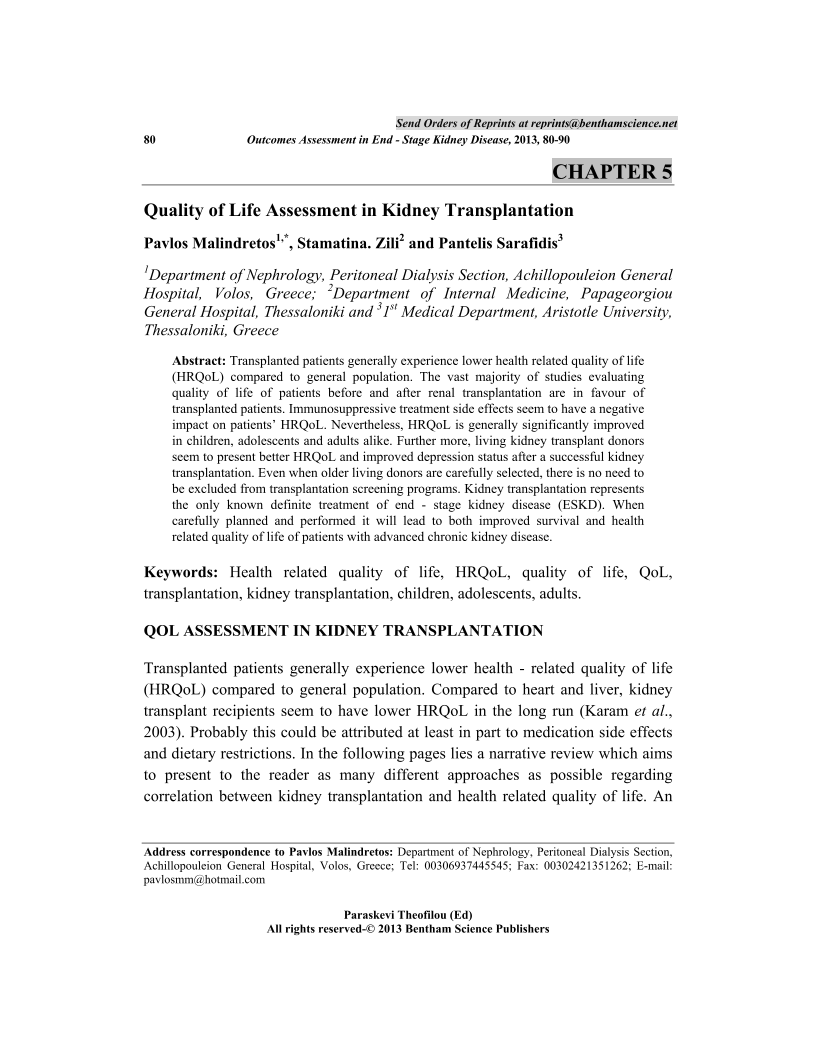Quality of Life Assessment in Kidney Transplantation

- Authors: Pavlos Malindretos1, Stamatina Zili2, Pantelis Sarafidis3
-
View Affiliations Hide Affiliations1 Department of Nephrology, Peritoneal Dialysis Section, Achillopouleion General Hospital, Volos, Greece 2 Department of Internal Medicine, Papageorgiou General Hospital, Thessaloniki 3 1st Medical Department, Aristotle University, Thessaloniki, Greece
- Source: Outcomes Assessment in End - Stage Kidney Disease - Measurements and Applications in Clinical Practice , pp 80-90
- Publication Date: October 2013
- Language: English
Quality of Life Assessment in Kidney Transplantation, Page 1 of 1
< Previous page | Next page > /docserver/preview/fulltext/9781608057351/chapter-5-1.gif
Transplanted patients generally experience lower health related quality of life (HRQoL) compared to general population. The vast majority of studies evaluating quality of life of patients before and after renal transplantation are in favour of transplanted patients. Immunosuppressive treatment side effects seem to have a negative impact on patients' HRQoL. Nevertheless, HRQoL is generally significantly improved in children, adolescents and adults alike. Further more, living kidney transplant donors seem to present better HRQoL and improved depression status after a successful kidney transplantation. Even when older living donors are carefully selected, there is no need to be excluded from transplantation screening programs. Kidney transplantation represents the only known definite treatment of end - stage kidney disease (ESKD). When carefully planned and performed it will lead to both improved survival and health related quality of life of patients with advanced chronic kidney disease.
-
From This Site
/content/books/9781608057351.chapter-5dcterms_subject,pub_keyword-contentType:Journal -contentType:Figure -contentType:Table -contentType:SupplementaryData105

